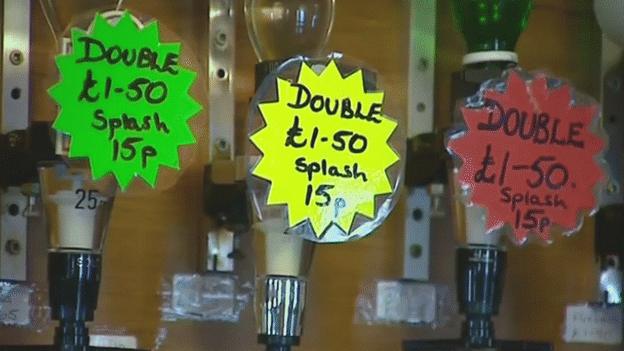Doctors criticise alcohol minimum pricing block
- Published
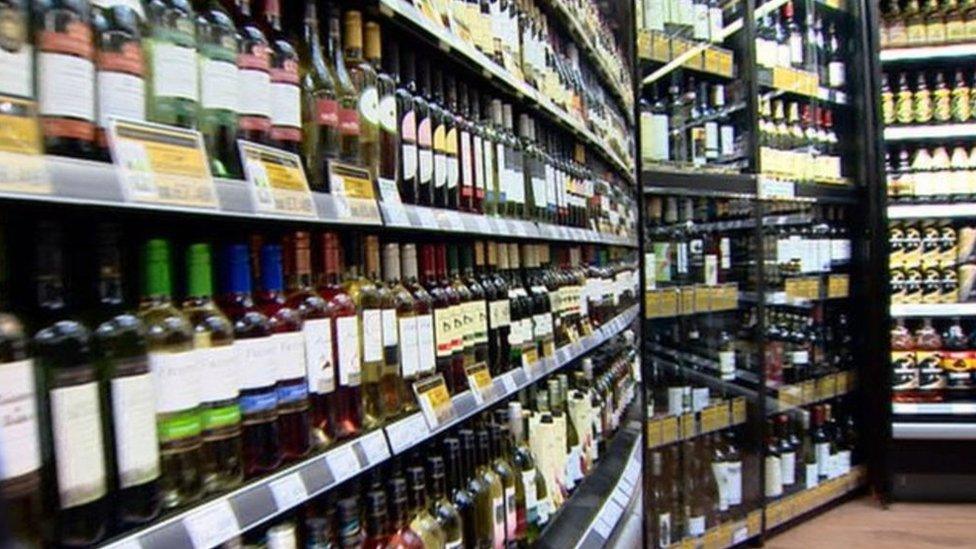
Campaigners claim alcohol is being sold for as little as 15p a unit in Wales
Doctors have criticised a block on moves to stop alcohol being sold "cheaper than water" in Wales after MPs refused to devolve pricing powers.
The Welsh Government wants to set a minimum 50p charge per unit of drink.
But UK ministers say alcohol law should remain reserved as it is closely linked to policing, controlled by Westminster.
The British Medical Association (BMA) in Wales said the impasse was a potential "hurdle" to a measure which would "save lives".
Research for the Welsh Government has suggested a charge of 50p per unit would save nearly £900m over 20 years by cutting crime and illness, leading to 50 fewer deaths a year.
Ministers in Cardiff Bay said that after "months of arguing" their request for control over alcohol pricing was rejected by MPs, as they passed the third reading of the Wales Bill on further devolution on Monday.
A Wales Office spokesman said: "The UK Government considers that alcohol licensing is closely connected to policing and maintaining public order.
"Given that policing and criminal justice remain reserved, alcohol licensing should also continue to be reserved."
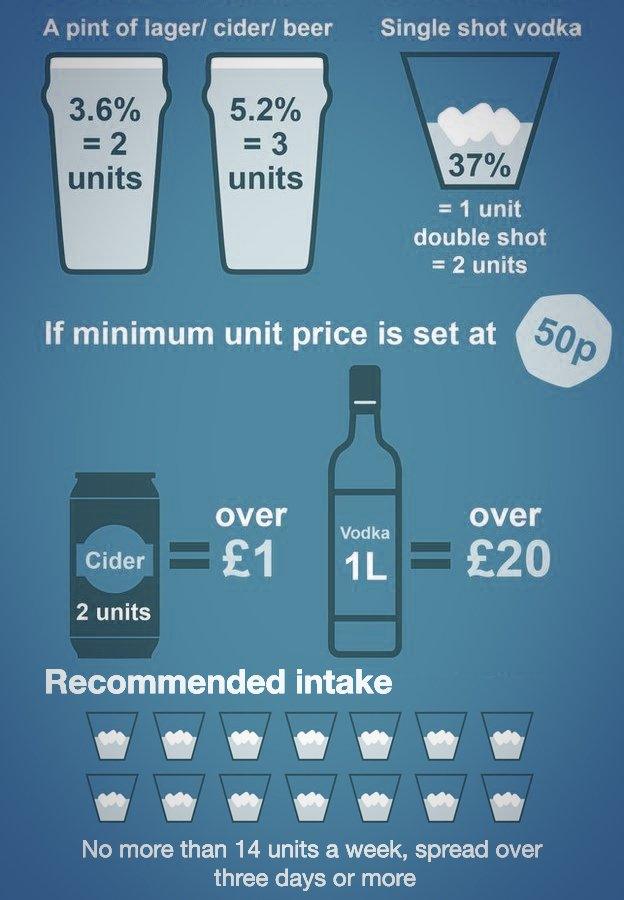
Dr Phil Banfield, chairman of the BMA's Welsh council, said the introduction of a minimum price would stop alcohol being sold effectively "cheaper than water".
"We believe that such a move will save lives through a reduction in alcohol consumption," he said.
"We are potentially facing another hurdle to these ambitions being achieved in Wales.
"BMA Cymru Wales continues to welcome any advancements in this measure becoming a reality in Wales, with people's health upheld as a priority."
Alcohol Concern Cymru director Andrew Misell was also concerned at how cheaply drink could be bought.
"Although alcohol is partly a policing and criminal justice matter, it is primarily a public health issue," he said.
"With alcohol on sale in Wales for as little as 15½p per unit, and minimum pricing apparently shelved in England, we would say that the time is right to give the assembly the tools to get the job done."
Rhun ap Iorwerth, Plaid Cymru's Shadow Health Secretary, said: "We voted for amendments to the Wales Bill to ensure that the power to regulate for this important aspect of public health is devolved to Wales.
"Plaid Cymru believes that minimum alcohol pricing would lead to savings to other public services as a result of fewer hospital admissions, and fewer acts of anti-social behaviour."
Challenges
A Welsh Government spokesperson said: "We have argued for many months that the National Assembly should have legislative competence in respect of the sale and supply of alcohol, and we promoted an amendment to the Wales Bill to secure this.
"The amendment was rejected in the House of Commons, but we are considering whether the matter should be returned to the House of Lords when the Bill reaches that house later in the autumn."
Ministers are also monitoring the situation in Scotland, where minimum pricing plans face a legal challenge from whisky producers, who claim they breach European law.
Welsh Secretary Alun Cairns said he did not agree with the BMA's view.
"Alcohol is so associated with criminal justice, there are so many facets to this debate, and because it's closely associated with criminal justice, policing is not devolved and therefore alcohol pricing should stay with that," he told BBC Wales' Jason Mohammad programme.
"Even in Scotland, where they believe they've got the power to introduce minimum pricing, they're being challenged through the court. There's a question whether it would be legal to do it."
- Published7 June 2016
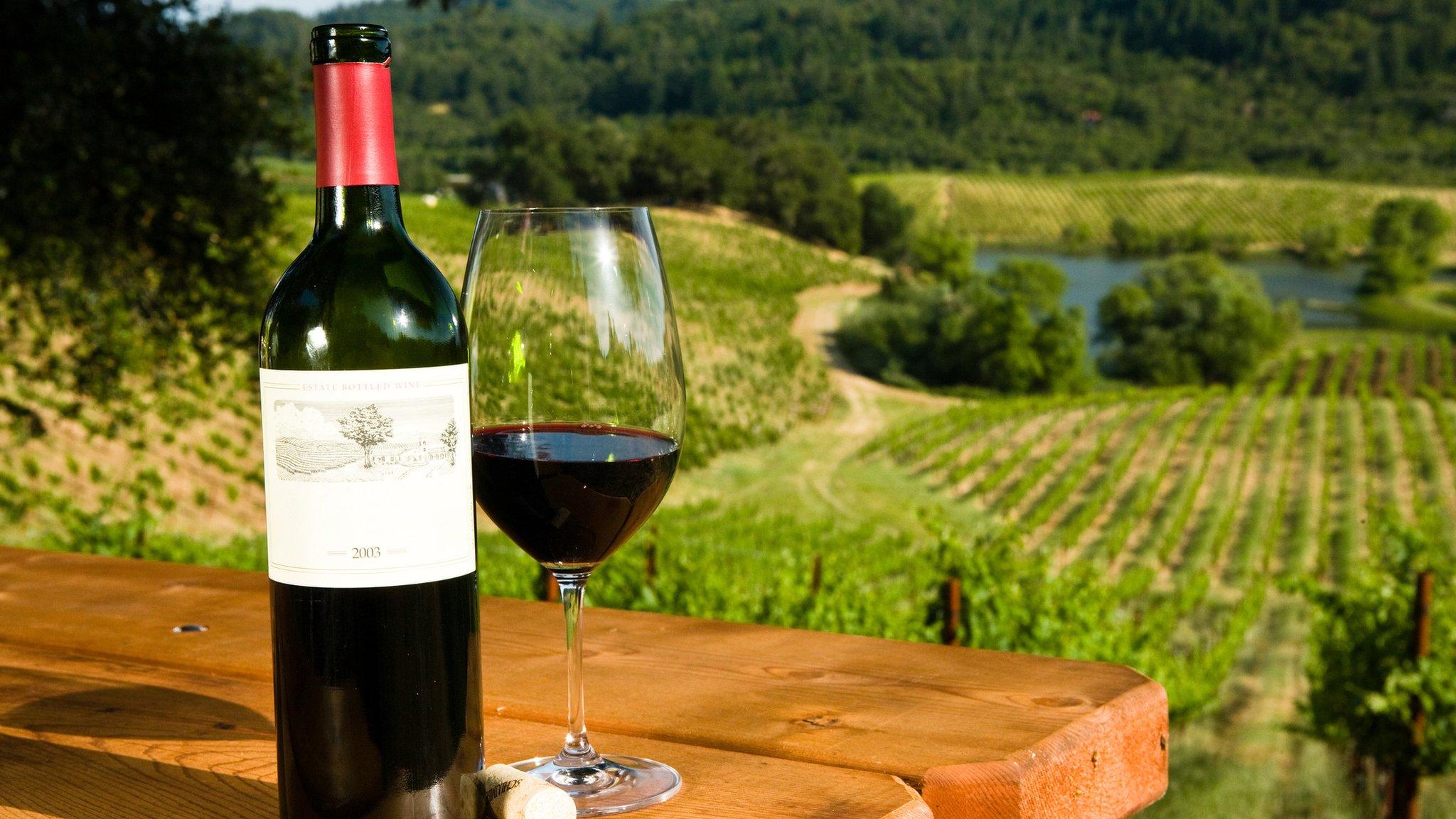
- Published17 August 2015
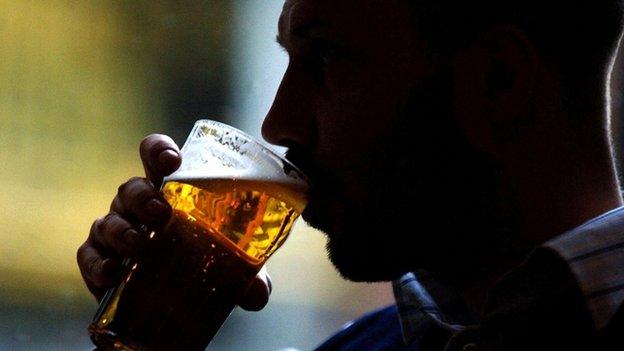
- Published15 July 2015
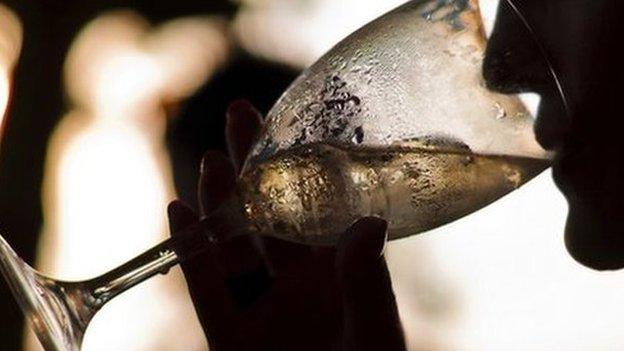
- Published8 December 2014
